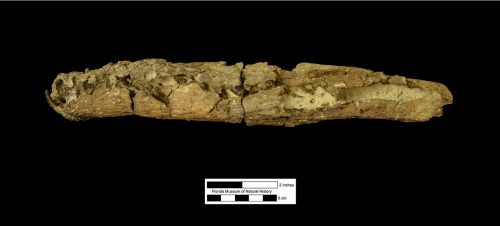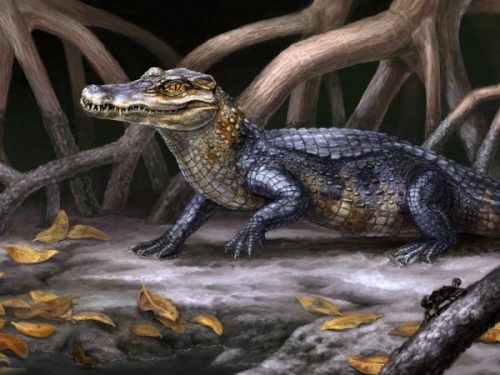
This Fossil Friday we have a caiman (Family Alligatoridae, Subfamily Caimaninae) named Culebrasuchus mesoamericanus. This specimen was found by PCP PIRE Ph.D. student Aldo Rincon on March 13, 2009 at the El Lirio Norte site of the Culebra Formation, making it early Miocene in age. It is the sister taxon to all other caimans, making it the first documented taxon to have diverged in the caiman evolutionary lineage. Because of this, this specimen can help us learn more about the divergence of alligators and caimans.

To learn more about this specimen, read the publication about it here. You can also read an eNewsletter article on other fossil crocodylians from Panama here.
References:
Hastings, A., Bloch, J., Jaramillo, C., Rincon, A., MacFadden, B. 2013. Systematics and Biogeography of Crocodylians from the Miocene of Panama. Journal of Vertebrate Paleontology 33: 239-263.
www.dx.doi.org/10.1080/02724634.2012.713814